Stop financing cruel factory farms!
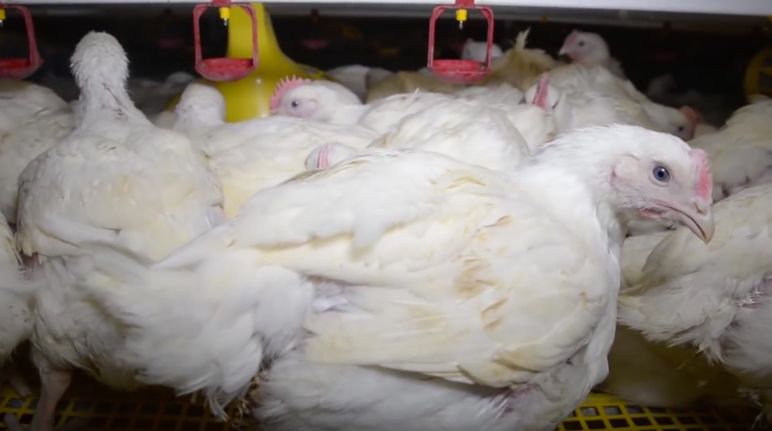 The fate of a chicken: 47 days in a crowded cage (© Firmenvideo FIT Farm)
The fate of a chicken: 47 days in a crowded cage (© Firmenvideo FIT Farm)
European institutions are financing cruelty to animals on a staggering scale. In a recent example, Belarus egg producer Servolux applied for funds from the EBRD, a European development bank, to build a giant poultry factory with battery cages that would be illegal in the EU. Tell the EBRD not to approve public funds for factory farms!
Call to actionTo: European Bank for Reconstruction and Development (EBRD) President Sir Suma Chakrabarti, other international financial institutions and export credit agencies
“Animals are not a commodity – they need our protection. Cruel factory farms do not deserve financial support.”
If the European Bank for Reconstruction and Development (EBRD) approves the Servolux loan application, 378,000 chicks a year will soon be packed tightly in barren battery cages and slaughtered after 47 days. If the company succeeds in getting the loan, it will mean even more taxpayer money going to promote factory farming!
Humane Society International (HSI) reports that the farm technology – which has been outlawed for use in the EU – will be delivered by the German manufacturer FIT Farm. While the company’s promotional video conjures up an image of clinical purity, in reality the animals lead short, miserable lives. FIT Farms responded to Rainforest Rescue's request for information by denying that its cages cause undue suffering.
The HSI report illustrates numerous further cases in which animal welfare is clearly not a consideration.
According to HSI, Germany backed the construction of two poultry farms in Ukraine by Avangardco Investments with Hermes export credit guarantees to the tune of €26.4 million. German public funds are thus going to finance battery cages abroad that would be illegal at home. Avangardco may nevertheless sell its egg products on the European market. Consumers are kept in the dark about how the eggs in processed foods are produced due to a lack of labeling requirements.
Rainforest Rescue has been speaking out against industrial animal agriculture for years, and we advocate a vegan diet for ethical and environmental reasons. Vast swathes of rainforest have been destroyed to make way for industrial soy and corn monocultures for animal feed.
There is no excuse for the public funding of factory farms. Tell the EBRD to stop financing cruelty to animals on an industrial scale!
BackgroundHumane Society International released its International Finance Institutions, Export Credit Agencies and Farm Animal Welfare report in February 2016.
The following is a summary of the report.
International finance institutions, export credit agencies and farm animal welfare
The EU Member States deploy public funds to support the construction of industrial-scale breeding plants for pigs, chickens and ducks outside the EU. Such facilities generally do not comply with EU animal welfare standards. This occurs in two ways that are described in the report and supported by examples:
International financial institutions (IFIs) to which the EU Member States belong provide the capital for such plants, even if their provisions for animal welfare do not meet the relatively low EU standards. Such institutions include the International Finance Corporation (IFC, part of the World Bank Group) and the European Bank for Reconstruction and Development (EBRD).
Export credit agencies (ECAs) of the Member States transfer the business risk borne by the exporters of battery cages and similar systems to the taxpayer – even if the exported products would not be legal for use in the home market. Job security (i.e. jobs in battery cage manufacturing) is usually cited in defense of this practice.
A number of improvements in animal welfare went into law in the EU in recent years, notably a ban on barren cages for laying hens or on keeping sows continuously confined in crates. Outside the EU, projects are realized with IFI and ECA support that would not be possible in the EU, as a selection of examples from the report shows:
International financial institutions (IFIs)
1) MHP
MHP (Myronivsky Hliboproduct) aims to become the largest poultry producer in Europe and is a prime recipient of capital from IFIs and ECAs. The company, which is headquartered in Luxembourg and has poultry plants in Ukraine, received more than $770 million from IFIs (IFC: > $500 million, EBRD: $185 million, EIB: $85 million) since 2003. ECAs (mainly in the Netherlands) provided guarantees for more than $100 million.
This capital allowed MHP to boost its existing production capacity by building a mega-farm for 111.7 million broilers in Vinnytsia. The capacity of that plant is slated to be doubled in 2016 despite protests by local citizens. From June 2014 to September 2015, MHP delivered a total of 36,150 tons of poultry meat to EU countries including the Netherlands, Germany, Belgium and Italy.
2) Muyuan
In December 2013, the IFC approved a $20.5 million loan to Muyuan, one of the largest pig breeders in China. The IFC had previously provided loans (approx. $30 million) to the company in 2010 and 2012. Muyuan was thus able to triple its annual production to 1.5 million pigs. The porkers are kept on slatted floors and sows permanently in crates in which they can only stand up and lie down – they do not have enough room to turn around.
In 2012, he IFC noted that the company’s sow housing is not in line with contemporary practices elsewhere in the world. While Muyuan had run a successful pilot program for group housing of 400 sows, the IFC repeated its 2012 assessment verbatim in 2013 without insisting that group housing be expanded.
3) Nyva Pereyaslavshchyny
The Ukrainian pig breeder Nyva received $25 million from the IFC and $30 million from the EBRD in 20014 to build four pig breeding facilities (in addition to the existing six) and expand its annual production capacity to 40,000 tons of pork. The IFC found that Nyva did not keep the sows in groups, that the stocking density of porkers is too high and that environmental enrichment material was not provided. Nevertheless, both IFIs authorized the loans. Only two of the four new plants are to be built in compliance with EU law – despite $55 million in public funds.
4) Hekangyuan
A $10 million loan from the IFC (July 2014) would enable the Chinese company Hekangyuan to realize a project that would make it the second largest producer of ducks and the fifth largest producer of broiler chickens in China. The expansion would increase the breeding facility’s capacity to 189 million ducks and 90 million chickens. The IFC’s project description does not contain any information regarding animal welfare.
Export credit agencies (ECAs)
1) Avangard / Germany
With a production of 6.3 billion eggs in 2014, Avangardco Investments (Avangard) calls itself the largest egg producer in Europe. The parent company is headquartered in Cyprus, while its production facilities are located in Ukraine. In 2012-13, Avangard built two new battery cage facilities for 11.2 million laying hens, as well as for five million parent animals and pullets. Equipment for the facilities was delivered by Big Dutchman (Germany), Salmet (Germany), Officine Facco (Italy) and others. Several ECAs provided guarantees – Germany for €26.4 million, Italy for €22 million, the Netherlands for €14.3 million – even though the German government noted that the cage systems do not comply with EU law, and certainly not with German animal welfare law (the EU effectively bans barren cages by requiring that chickens have permanent access to litter, while German law bans both barren and enriched cage systems). Avangard received the authorization to export egg products to the EU in 2014.
2) Miratorg / Netherlands
Miratorg – Russia’s largest pork producer – built a giant poultry plant in western Russia from 2011 to 2015. The site features facilities for parent animals, a hatchery for 75 million eggs and seven broiler farms that produce more than 50 million chickens a year in multistory battery cages on conveyor belts. The conveyor belts remove manure and finally transport the chickens to be slaughtered. The Dutch ECA provided an export credit guarantee worth €7.4 million for the system, which was delivered by the Netherlands. Miratorg received the authorization to export chicken meat to the EU in November 2015.
3) Creative Group / Germany
In 2013-14, Germany provided an export credit guarantee over an unknown amount for the construction and equipment of a breeding farm in Ukraine with a capacity of 864,000 ducks (5.4 million per year). The ducks will be housed on plastic grated flooring without litter or access to water (other than nipple drinking systems). The operating company Creative Group is partly owned by the family of a deputy in the Ukrainian parliament. Protests by local residents had led to the cancellation of the project at its original location. The project is also facing massive protests at its current location. Construction work is still in progress. Both German and Polish ECAs received requests for export credit guarantees.
4) Bolshevik Agro / Italy
In 2013, Italy provided an export credit guarantee over an unknown amount for the construction of Bolshevik Agro’s pig breeding complex in Belarus. The plant’s capacity is 1,200 sows and 24,000 porkers per year. The sows are continuously kept in crates, a practice prohibited in the EU. Piglets and porkers are kept on slatted floors.
EU and Ukraine Association Agreement
According to the Association Agreement between the EU and Ukraine that provisionally took effect on 1 January 2016, Ukraine shall “approximate” its animal welfare legislation to that of the EU, and the parties to the agreement will work together toward that end. The continued support of IFIs and ECAs for factory farms that do not conform to EU standards runs completely counter to this goal, however.
Policies for loans and guarantees
The decision-making bodies of international financial institutions, in which Member States are represented according to their capital contribution, establish policies for the awarding of loans. The World Bank has its Safeguard Policies, which are also used as a guideline by many other institutions. The Safeguard Policies have not previously contained any provisions regarding animal husbandry or animal welfare, but they are currently being revised and a new version should be published in 2016. While the most recent draft contains a paragraph about animal agriculture, the wording is still vague and inadequate.
The relevant policies of the IFC are its Performance Standards and EHS Guidelines. Neither address animal welfare issues. The IFC also has a Good Practice Note (GPN) on animal welfare in livestock operations that contains a number of good points, but it remains non-binding.
The EBRD’s Environmental and Social Policy (ESP) that takes animal welfare into account for the first time has been in place since November 2014: EBRD clients must now comply with either current EU or Good International Industry Practice (GIIP) animal welfare standards – whichever are more stringent. While this can be regarded a milestone, the EBRD has nevertheless continued to provide capital to MHP (see above) since its ESP took effect – in this case by earmarking it for fodder production. It therefore remains to be seen whether the EBRD intends to meet or circumvent its own ESP.
The European Investment Bank (EIB) instituted a similar policy in 2015. Compliance with EU animal welfare legislation is mandatory only for projects in the eastern EU neighboring countries and potential candidate countries, however.
In its “Common Approaches”, the Organization for Economic Cooperation and Development (OECD) establishes a general framework for export credit guarantees. Although more than half of the OECD members are EU Member States, the version adopted in 2012 contains no provisions on animal welfare. The Common Approaches will be revised in 2016, and animal welfare may then be taken into account in the framework for the first time.
Political statements of intent
Humane Society International first raised the issue of animal welfare in a report to the public in June 2013. Since then, several statements of intent to consider animal welfare have been made.
In an August 2013 resolution, Germany’s conference of State Ministers of Agriculture called on the government to ensure Hermes export credit guarantees only go to farm animal operations that comply with or exceed national and EU standards. In April 2014, they asked the government to work actively within the IFIs toward binding animal welfare criteria based on EU laws when granting investments related to animal agriculture. They also asked the government to initiate a common position of EU Member States to meet this goal.
In December 2014, the agriculture ministers of Denmark, Germany and the Netherlands adopted a joint declaration on animal welfare. It states that Denmark, Germany and the Netherlands intend “to promote animal welfare in the framework of national and international financial institutions that engage in the farming sector, as well as in the international policy framework for national export credit agencies ...”.
The IFI strategy of the Austrian Ministry of Finance from 2015 included a call for “animal husbandry criteria that meet the European standards.”
In 2015, the government of the United Kingdom stated its “desire to promote better animal welfare standards worldwide, with those in the EU as the benchmark.” The government also called on multilateral banks to ensure that their lending “strongly supports the delivery of appropriate animal welfare standards”.
Humane Society International recommendations
The World Bank Group should adopt binding animal welfare standards within the Safeguard Policies, Environmental, Health, and Safety Guidelines, and Performance Standards. These standards should be based upon and employ the IFC’s Good Practice Note or Good International Industry Practice (specifically EU animal welfare standards), whichever is most stringent. The OECD should adopt binding animal welfare standards within the OECD Common Approaches.
EU countries should not grant nor support granting any investment capital towards agribusiness operations outside the European Union unless they meet EU standards for animal welfare.
To: European Bank for Reconstruction and Development (EBRD) President Sir Suma Chakrabarti, other international financial institutions and export credit agencies
Dear Sir Suma Chakrabarti,
Ladies and Gentlemen,
International financial institutions and export credit agencies are providing loans and guarantees for factory farms that violate animal welfare standards.
Egg production facilities using battery cages that have been outlawed in the EU are recipients of such financial support. Operations that keep sows continuously in tight crates can also count on support from public coffers.
Please ensure that farms that practice cruelty to animals on an industrial scale no longer benefit from public funds. Animals are not a commodity – they need our protection.
Kind regards,
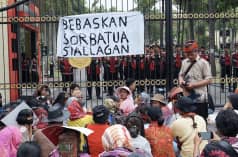
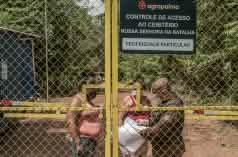
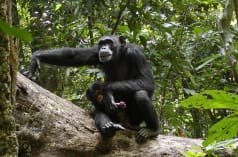








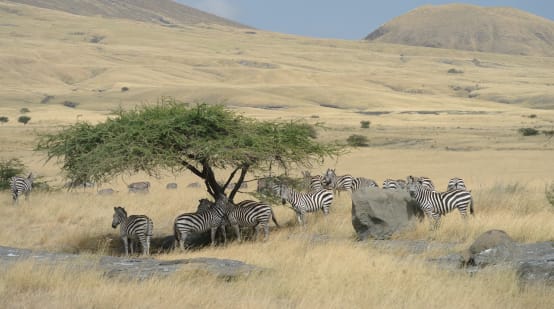
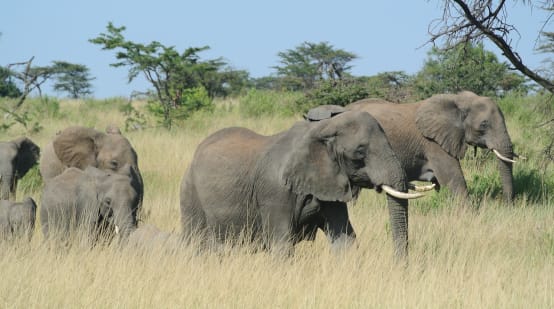
 Recent successes
Recent successes